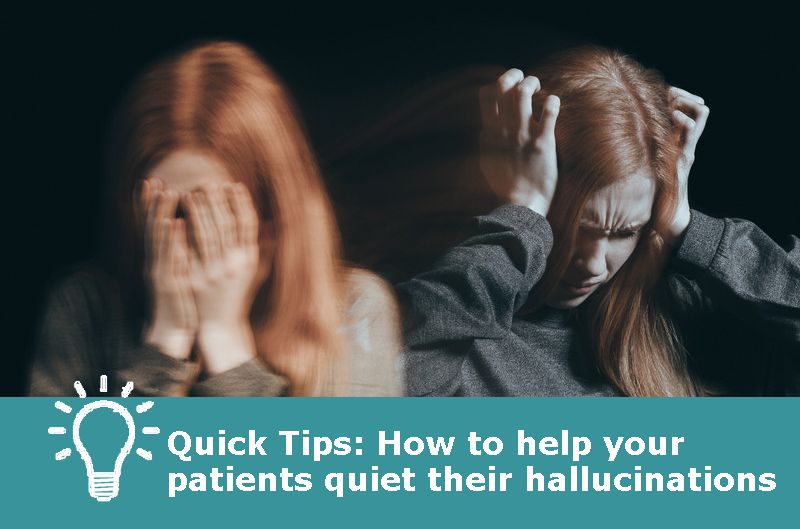How to help your patients quiet their hallucinations
The Carlat Psychiatry Blog, Volume , Number ,
https://www.thecarlatreport.com///
How can we help our psychotic patients cope with hallucinations that are still bothering them, despite adequate doses of antipsychotic medication? Here are some techniques to try (acknowledgments to Dr. Dost Ongur of McLean Hospital, who had discussed these in a past issue of The Carlat Psychiatry Report). Music. This sometimes helps, but other times aggravates hallucinations. Imagery. One patient imagined the voices going into a closet, and she saw herself putting a blanket over the voices, closing the door, then locking the door, then double and triple locking it, etc…. With each step the voices got softer and softer. Talking back to the voices. Dr. Ongur had a patient who was tortured by voices representing a struggle between good and evil. He asked her “What can you say to those voices that will help you cope with them?” She came up the following: “This battle doesn’t concern me, you figure this out amongst yourselves!” And she found this to be a very effective strategy to distance herself emotionally from the voices. Compartmentalizing the symptoms. For example, you might say to your patient, “When you go to work, you don’t have to listen to the voices. Listen to them only when you come home.” Attribution shifting. A patient believes a voice is coming from the devil and feels that he is being controlled. Encourage him to attribute the voices to something else: “I have a chemical imbalance and this voice is just a symptom of my illness. If I practice some coping skills I am going to be able to reduce the intensity of this.” Enlist a support network to help. A college student had delusions of reference, and he asked some friends to serve as a reality check. In class, if he would see people making gestures and wonder if they were sending messages about him, he would go to one of his friends and ask, “Are these people moving around because of something I’m doing?” And his friend would confirm, “No this is just people moving around, it has nothing to do with you.” Let me know if these are helpful in your practice and if you have any other techniques that you’ve found useful. Subscribers to The Carlat Psychiatry Report can read all the articles and interviews we’ve done with Dr. Ongur, including this Expert Q&A on The New Emphasis on Community Functioning in Schizophrenia. Subscribe here for access to all the searchable archives. Daniel J. Carlat, MD 
Publisher of The Carlat Psychiatry Report


